The new AMD Ryzen 7 9800X3D processor was expected to deliver exceptional gaming performance — and it has done just that. However, its lead over predecessors is modest, and it doesn't stand out in other tasks either.
The impressive gaming performance is fueled by the second-generation 3D V-Cache, with the AMD Ryzen 7 9800X3D featuring 8 cores and supporting 16 threads of data processing. The cores operate at frequencies ranging from 4.7 to 5.2 GHz, and it has 96 MB of L3 cache with a power consumption of 120W. All this is offered at a recommended price of $479.
This time, AMD has organized the 3D V-Cache quite differently. The cache has been moved underneath the CCD (Core Complex Die). This results in significantly higher potential clock speeds and reduced heat output. The new design also addresses the thread distribution issue that partially affected the AMD Ryzen 9 7950X3D. The processor's maximum power consumption is capped at a PPT (Package Power Tracking) of 162W.
Gaming
There’s no point in providing numerical test results across various games and capabilities — the AMD Ryzen 7 9800X3D consistently ranks at the top. The exception is Counter-Strike 2, where nearly all chips deliver similar results with the NVIDIA RTX 4090, making other processors "faster" by just 1 FPS. Currently, the answer to the question "Which processor is better for gaming?" is straightforward and clear, even though the performance of the Ryzen 7 7800X3D and Ryzen 7950X3D is almost indistinguishable. Intel's top offerings lag behind, sometimes by a couple of FPS, and at other times, quite noticeably.
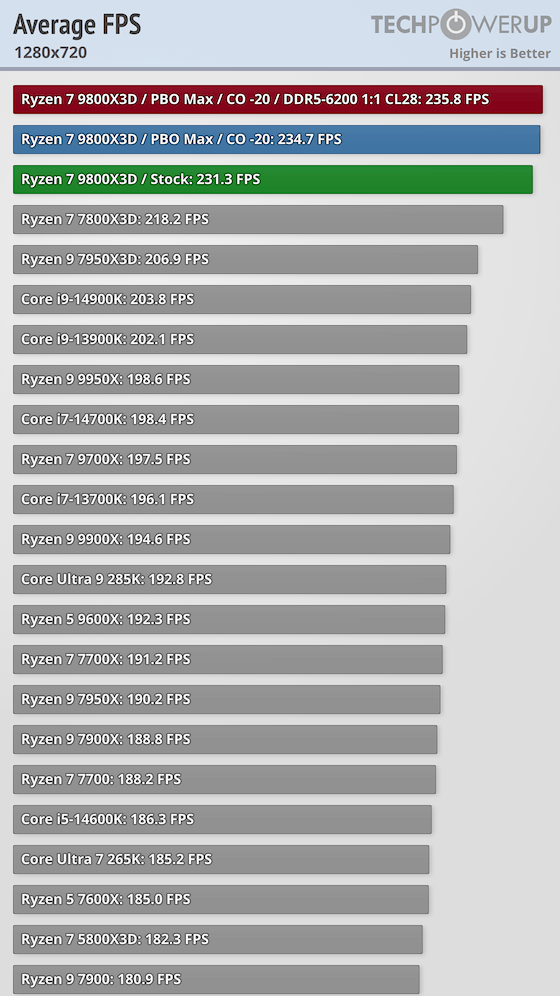
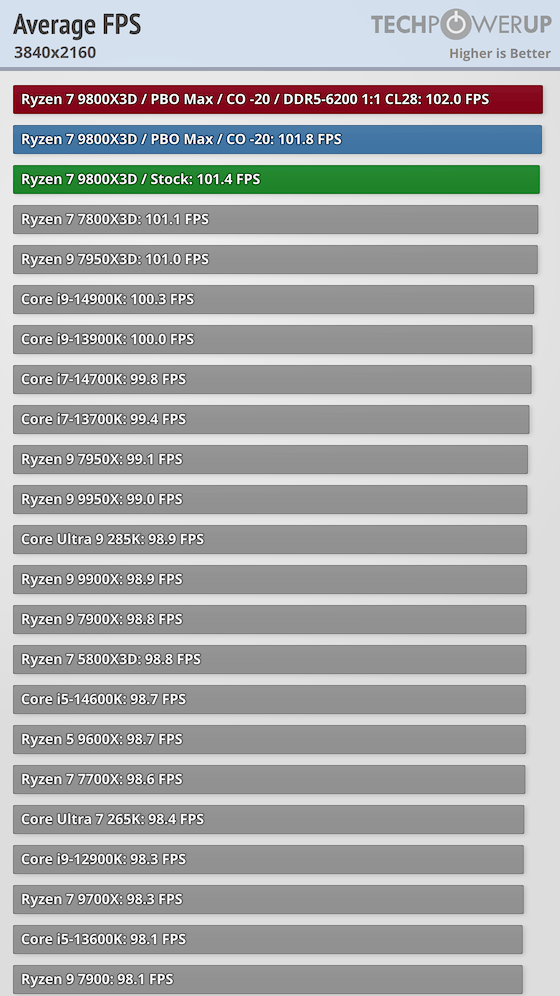
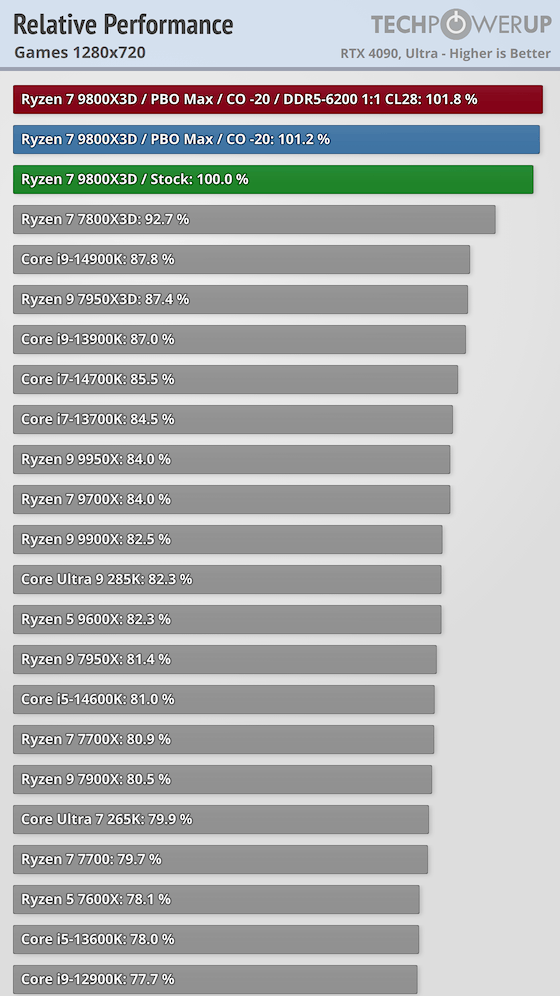
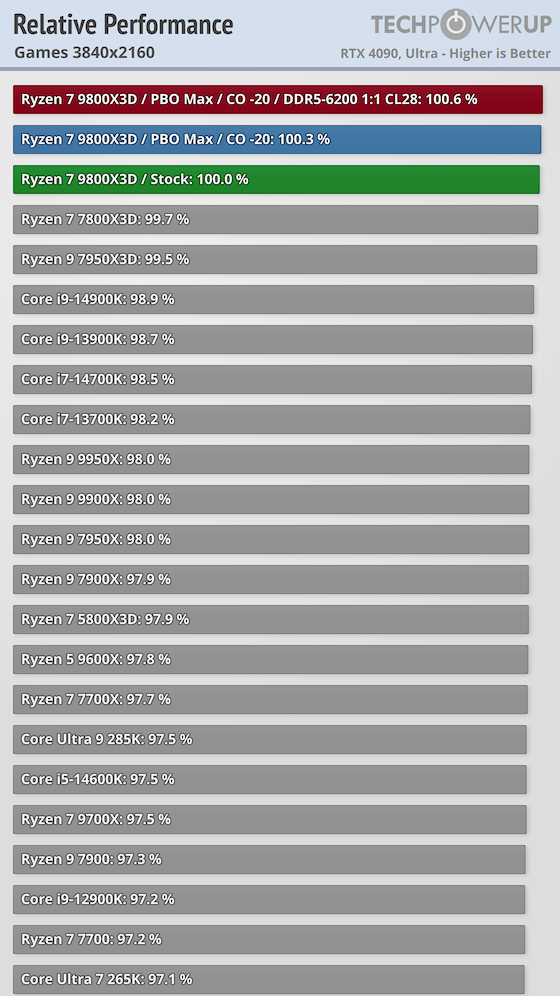
Synthetic Tests and Browsing
In Y-Cruncher and Chess Simulation tests, the Ryzen 7 9800X3D scores closer to the middle. It falls behind chips like the Intel Core Ultra 7 256K, and in the latter test, even the top Intel chips from previous generations. However, in browser performance, especially with fast memory, AMD's new product can also be considered leading.
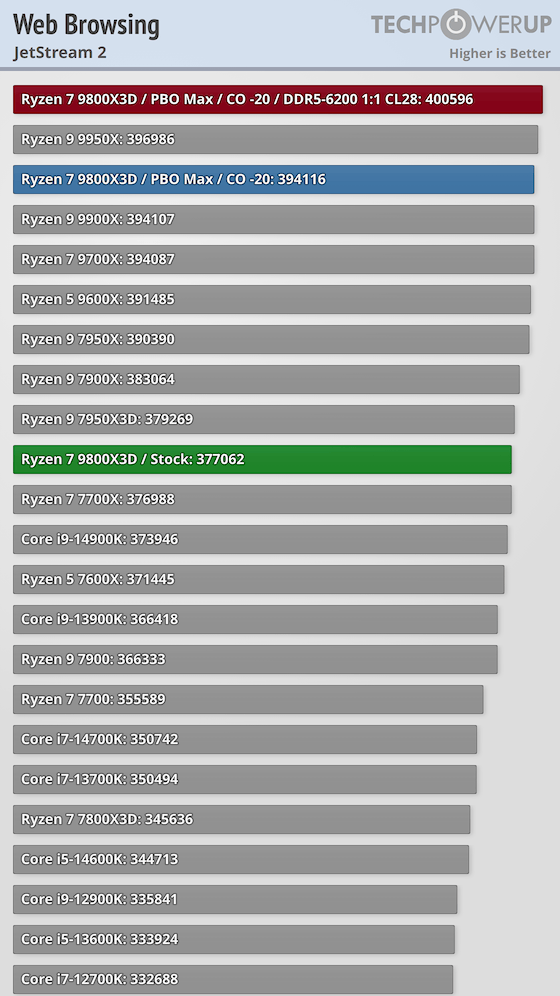
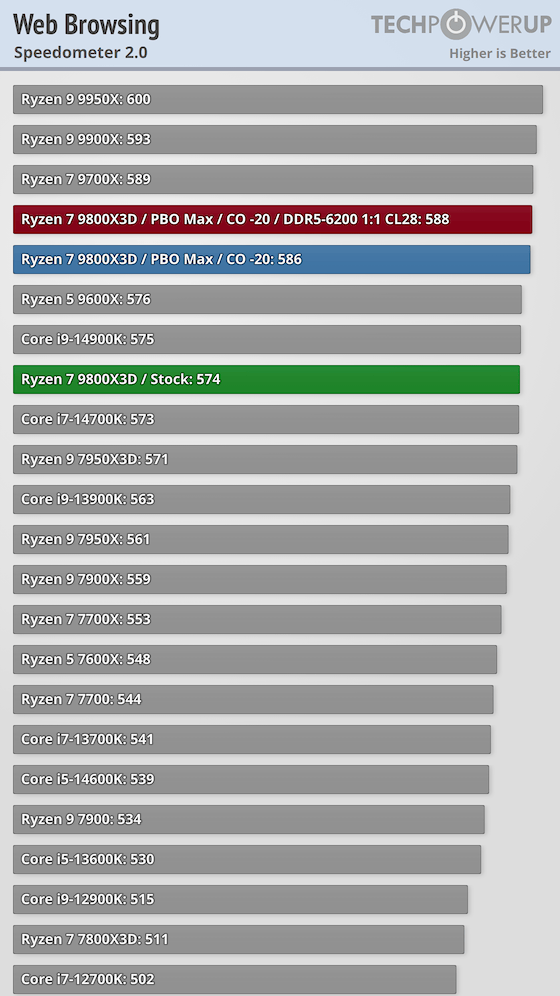
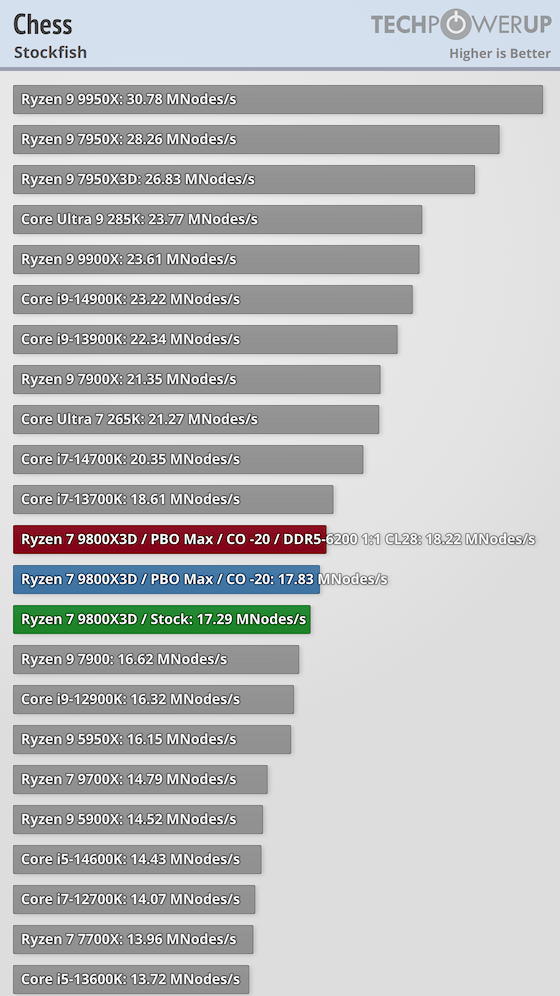
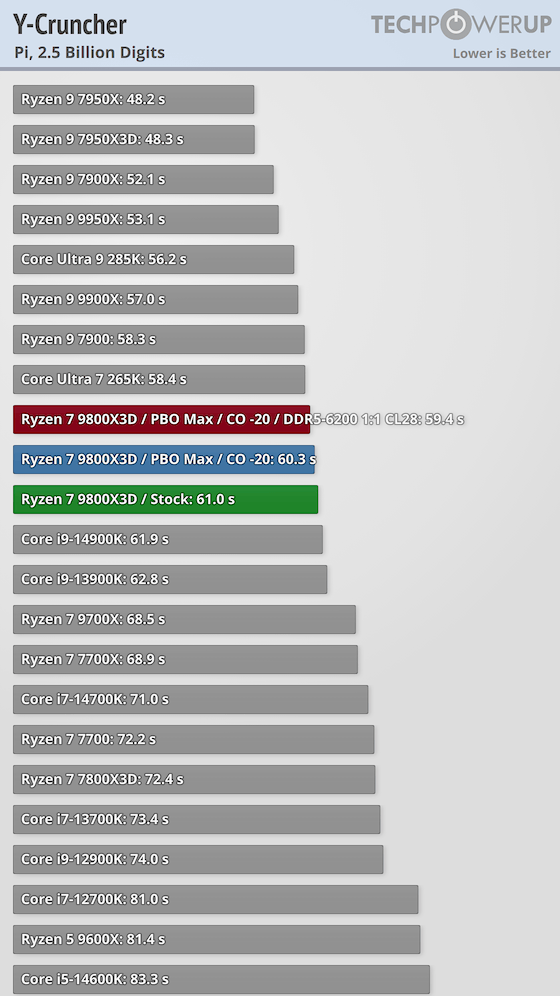
Rendering
In the multi-threaded Cinebench test, the Ryzen 7 9800X3D doesn't reach stellar heights. Top chips from several recent generations outperform this processor, sometimes achieving results nearly twice as good. However, in single-threaded testing, it ranks within the top ten. In Blender and other tests, the CPU typically lands in the middle, primarily positioned toward the lower end of performance.
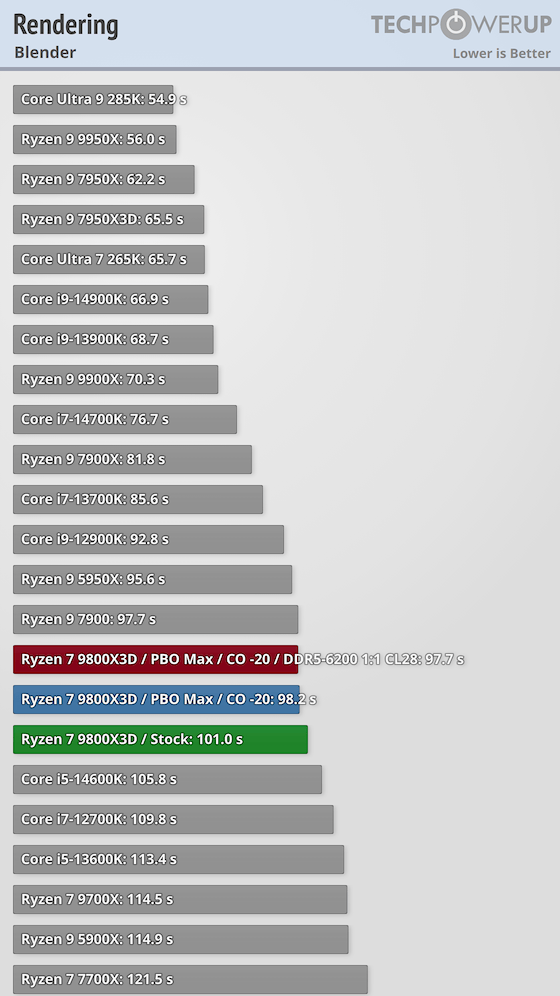
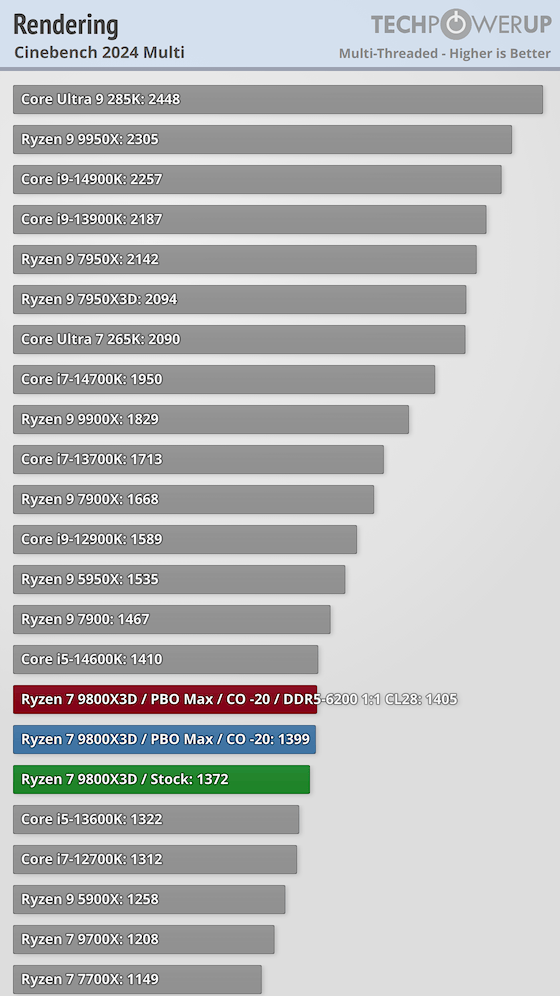
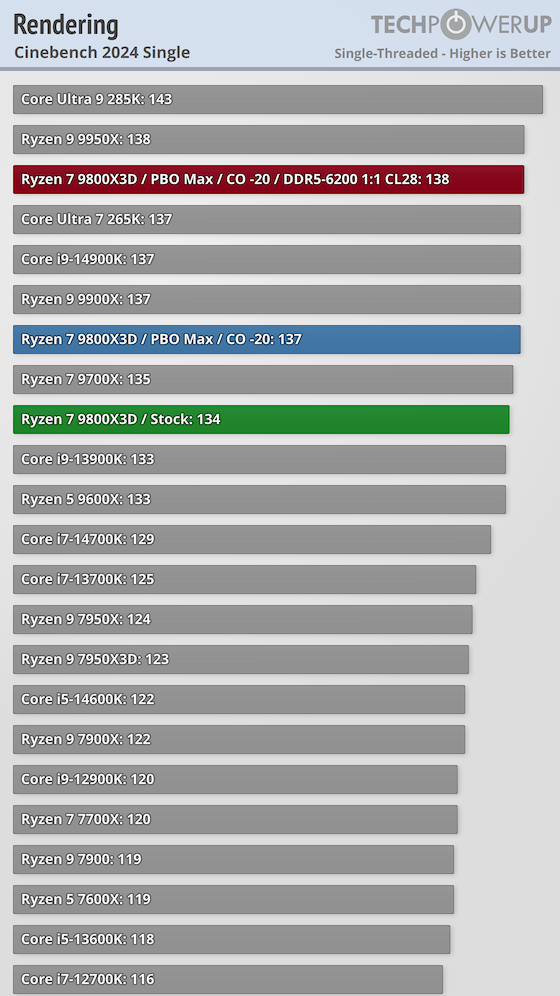
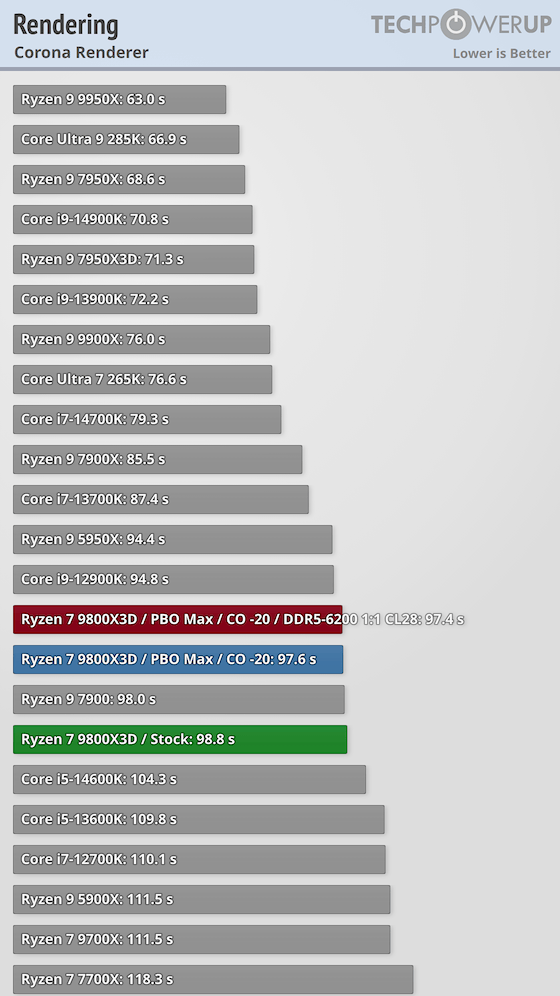
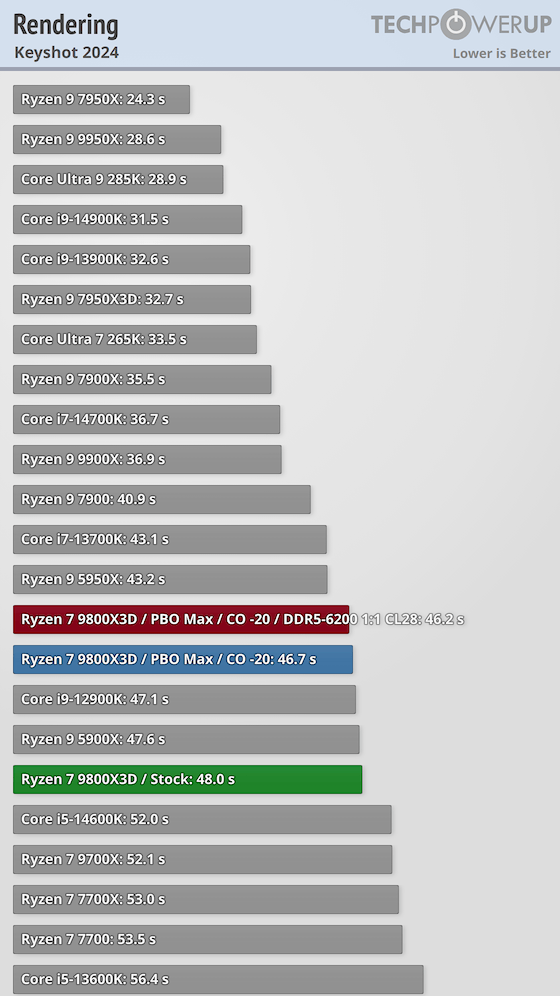
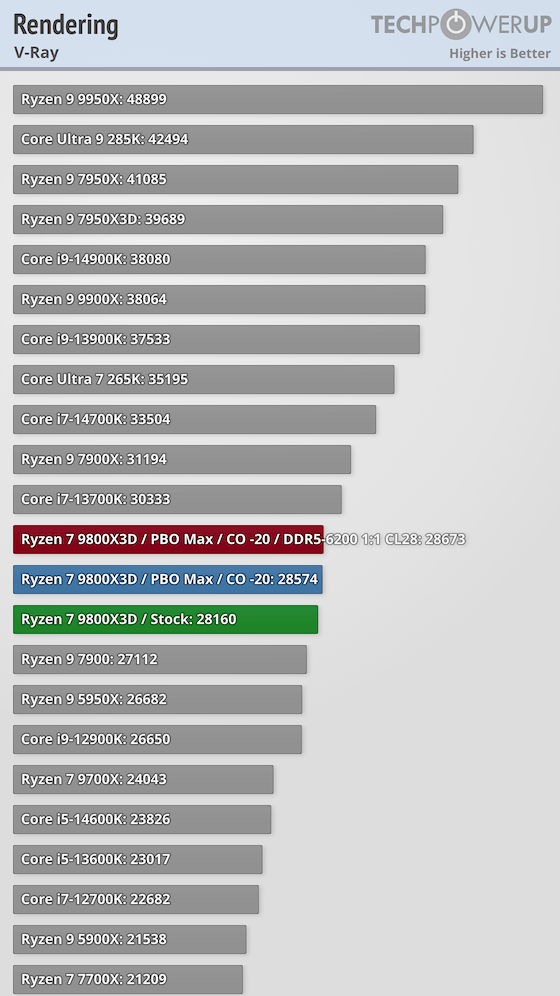
Software and Development
In Unreal Engine 5, the Ryzen 7 9800X3D showcases solid, albeit not the best, performance. In Git VCS, the processor excels, as it does in Microsoft Visual C++. In Microsoft Office, its performance is again among the best, while PowerPoint lags a bit, similar to Excel and Outlook.
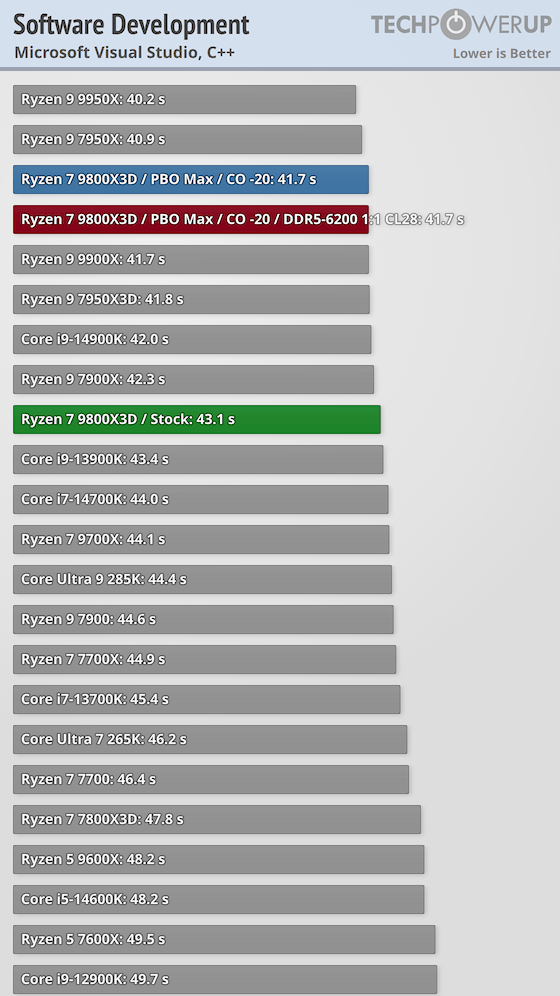
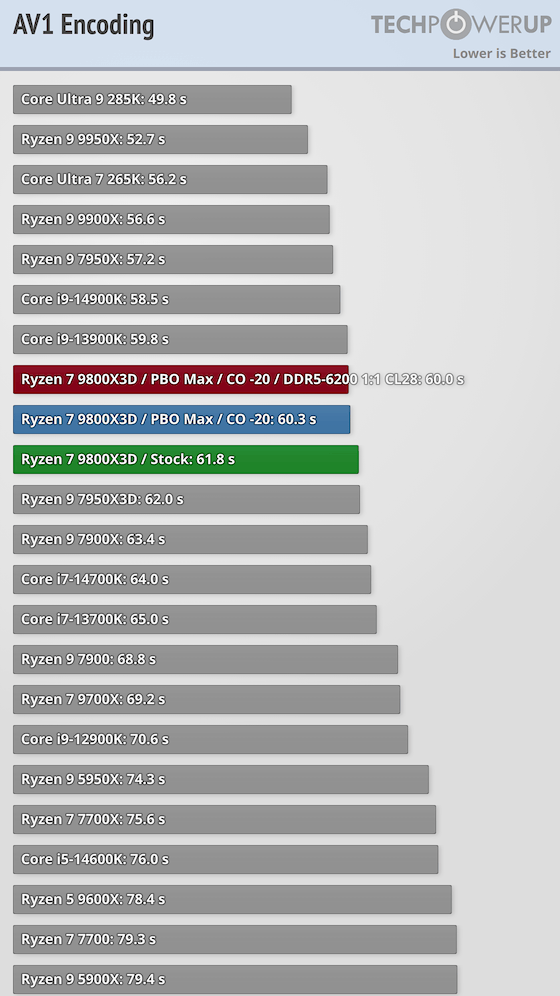
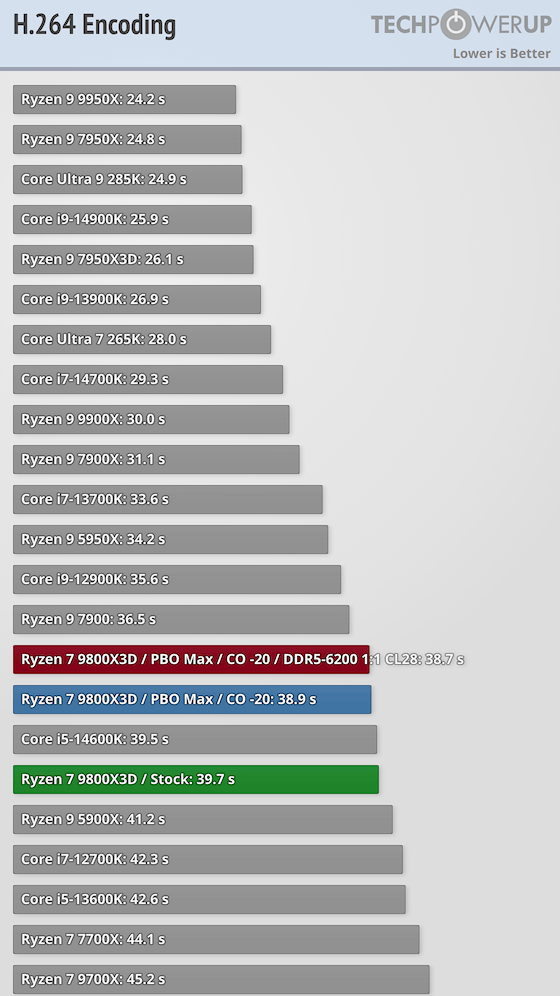
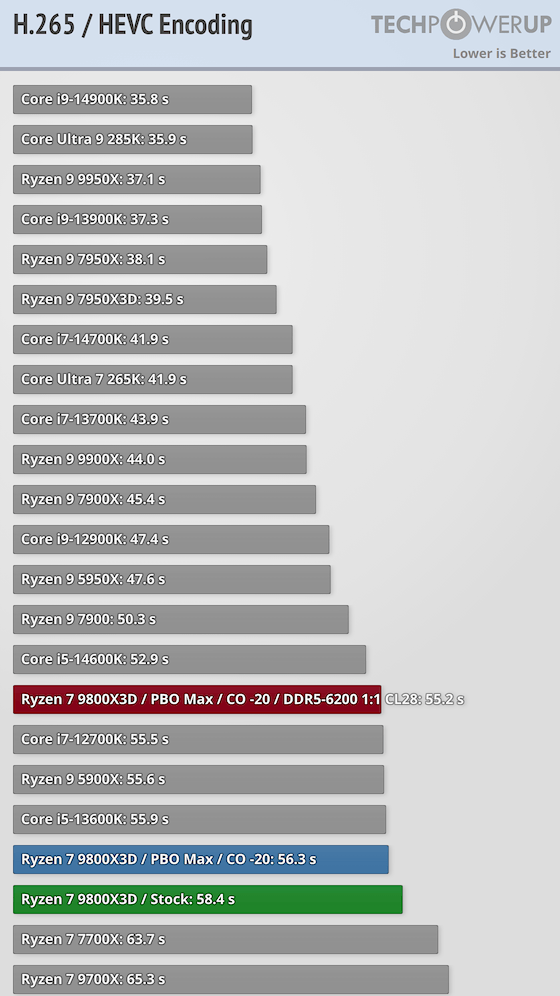
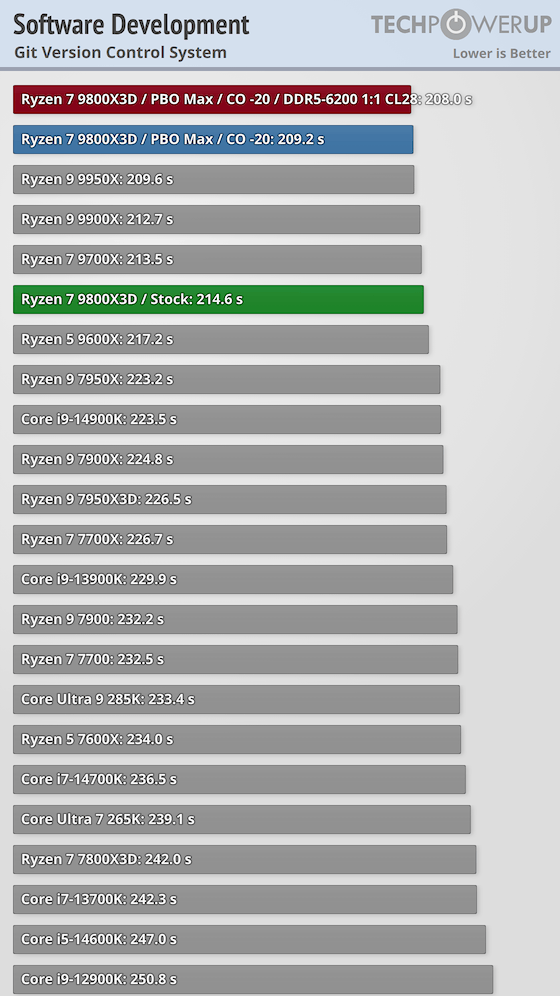
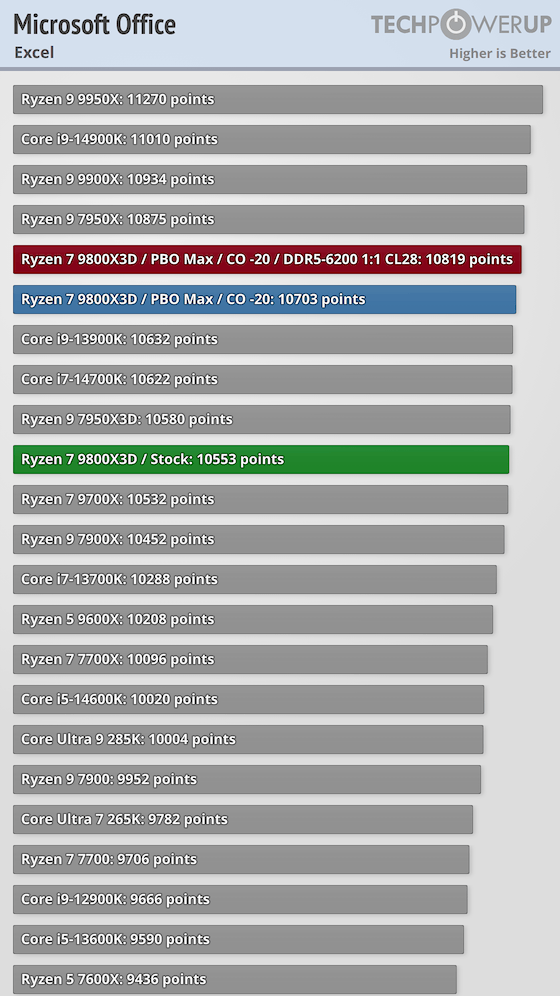
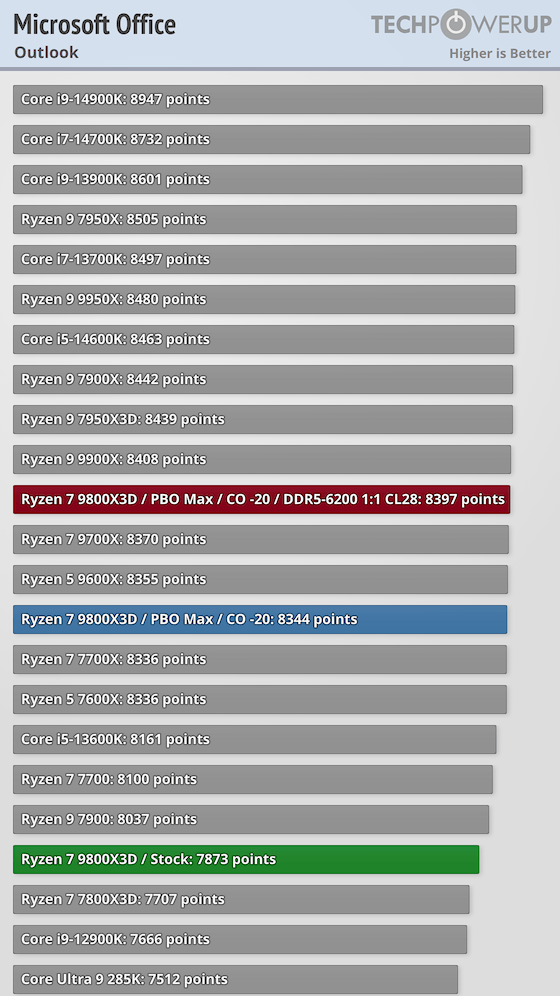
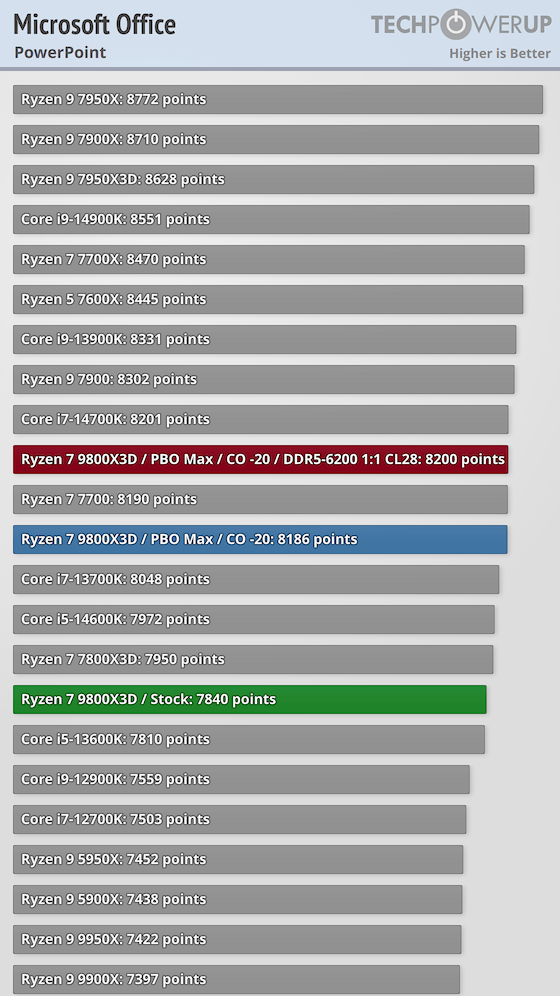
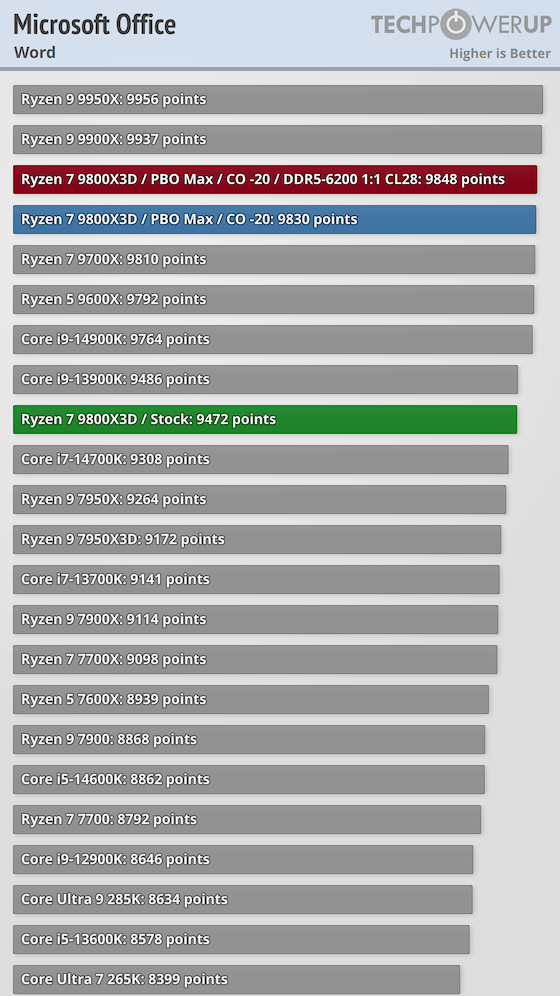
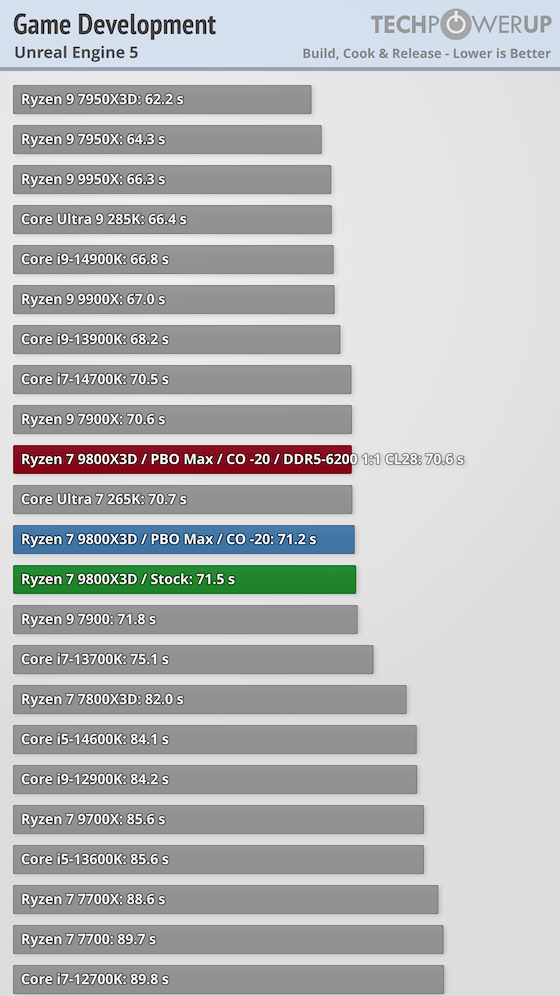
Image and Media Processing
In image processing, the chip is unrivaled in Adobe Photoshop but performs slightly worse in other software from both Adobe and competitors. Media playback is also not a strong point for the Ryzen 7 9800X3D.
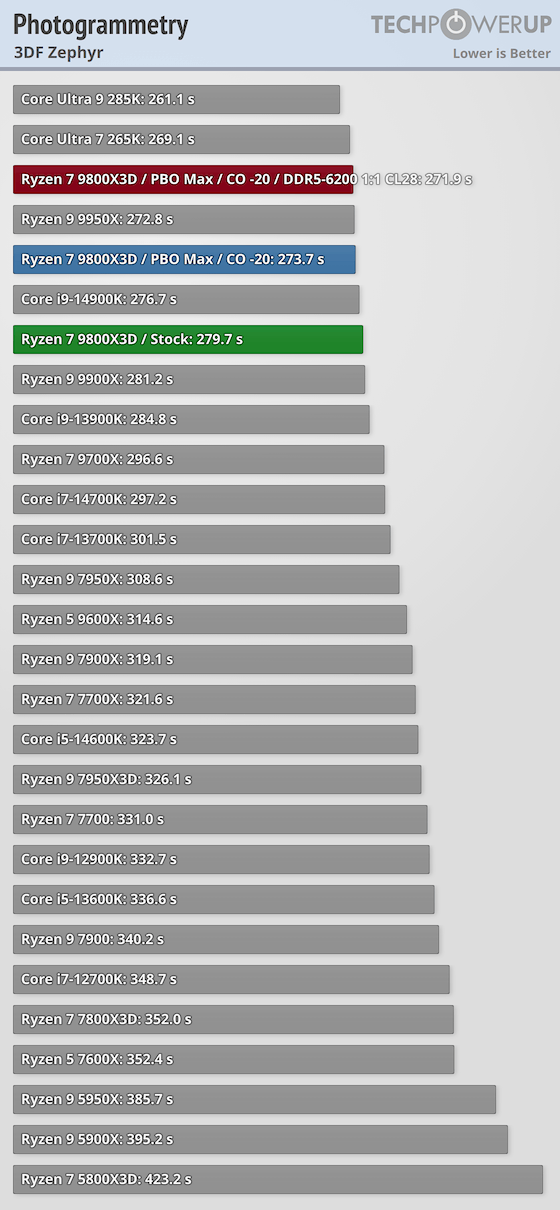
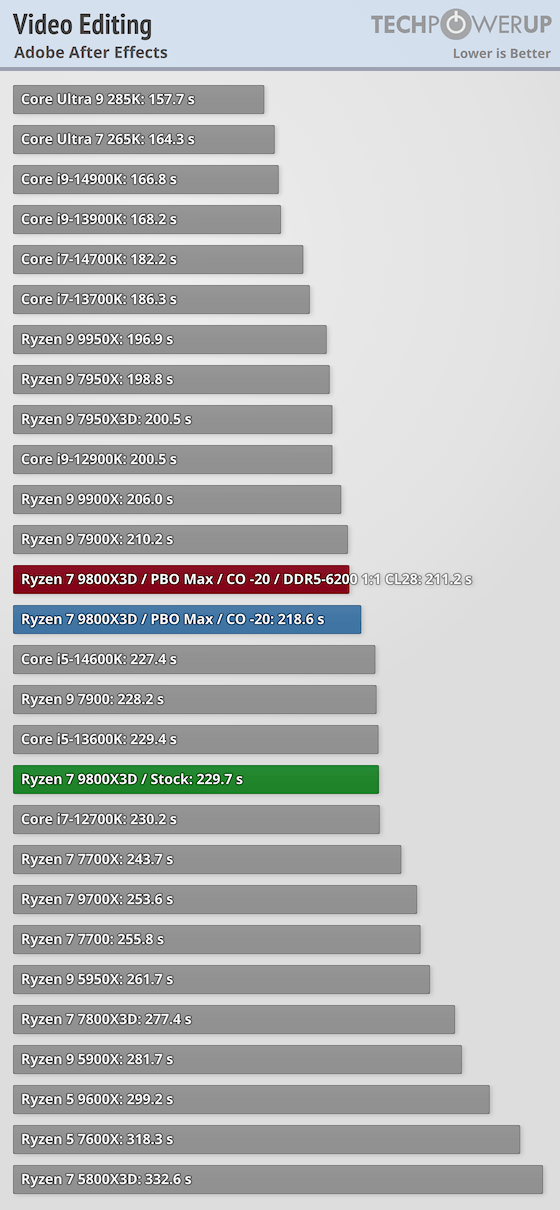
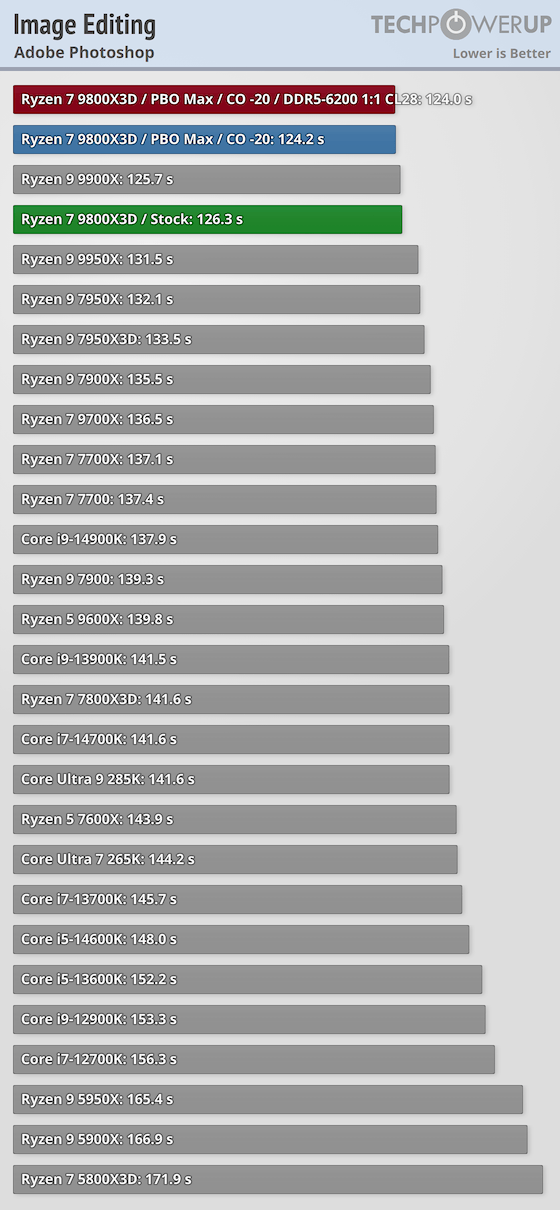
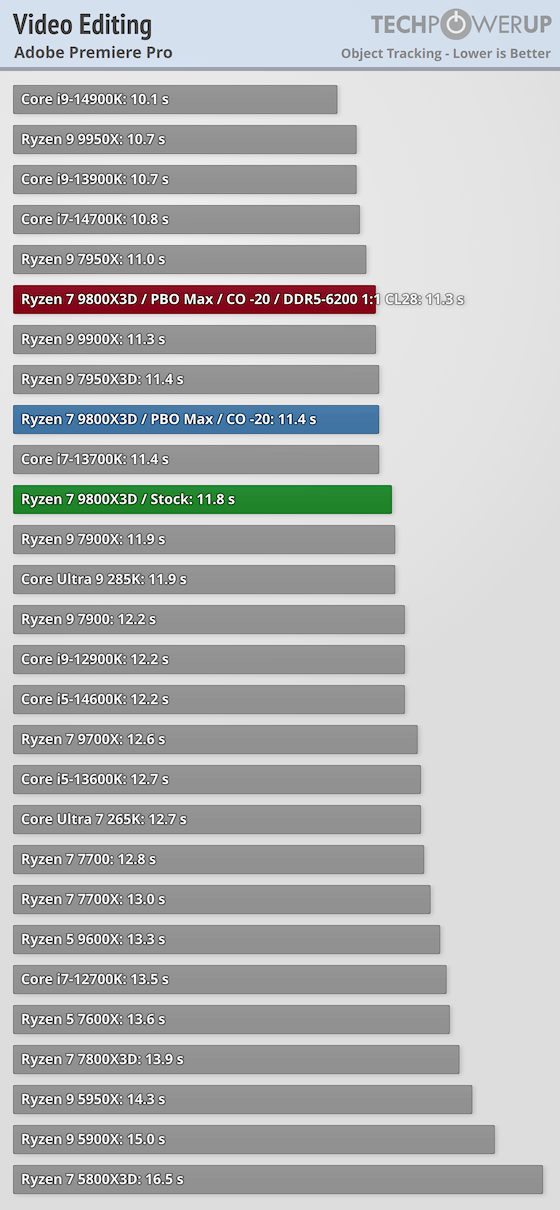
Thus, when choosing a processor, you can have no doubts regarding gaming performance, but if you are also interested in other tasks, it’s advisable to consider productivity benchmarks. Some may opt for a different chip for specific tasks with a slight trade-off in gaming, while others may find the undeniable gaming speed preferable even with a generally minor, but at times significant, drop in productivity performance.
For those who work in browsers, the AMD Ryzen 7 9800X3D is also arguably one of the best choices. Consequently, the processor is ideal for the two most common home computer activities — gaming and internet browsing.
Sources: TechPowerUp, Notebookcheck






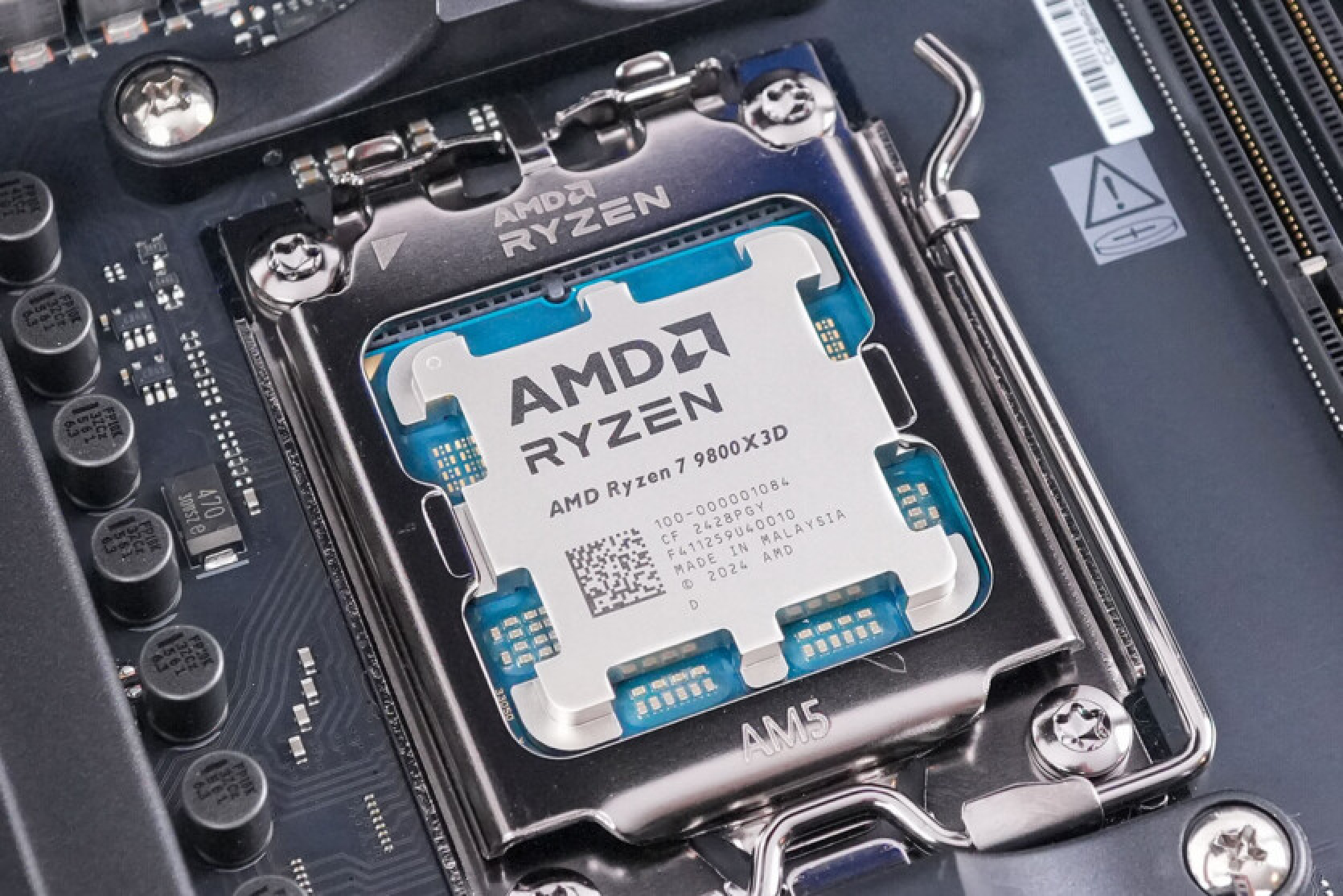


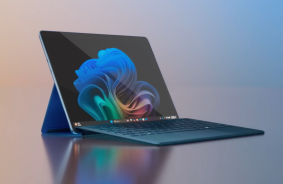
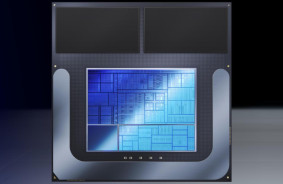
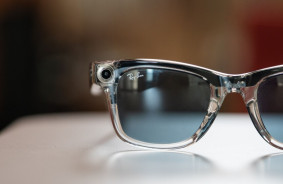

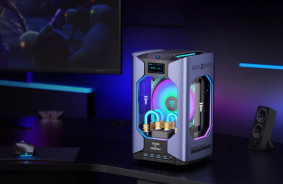
Comments (0)
There are no comments for now